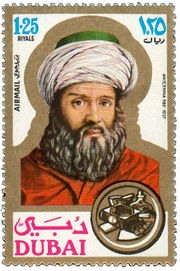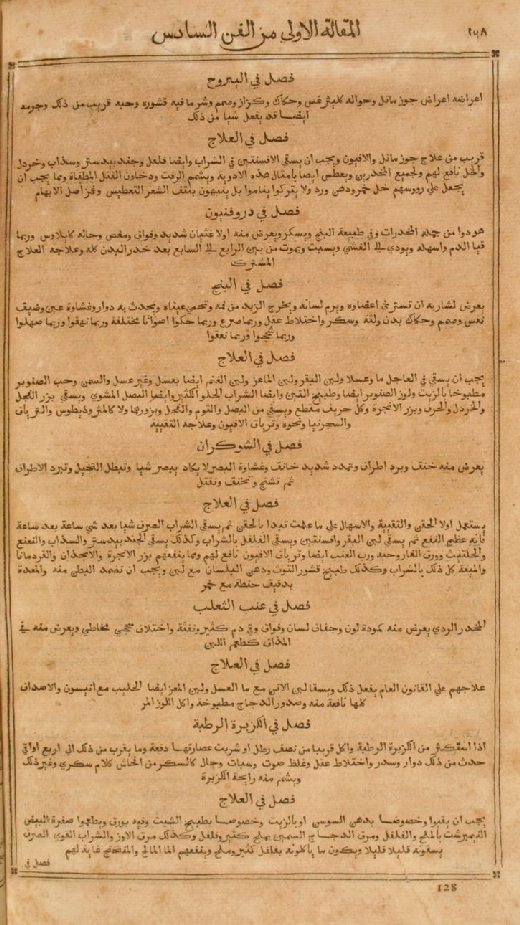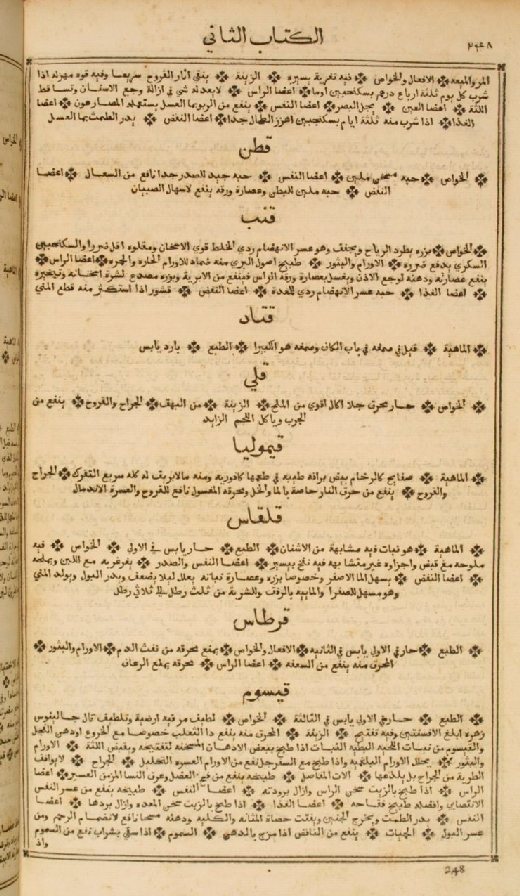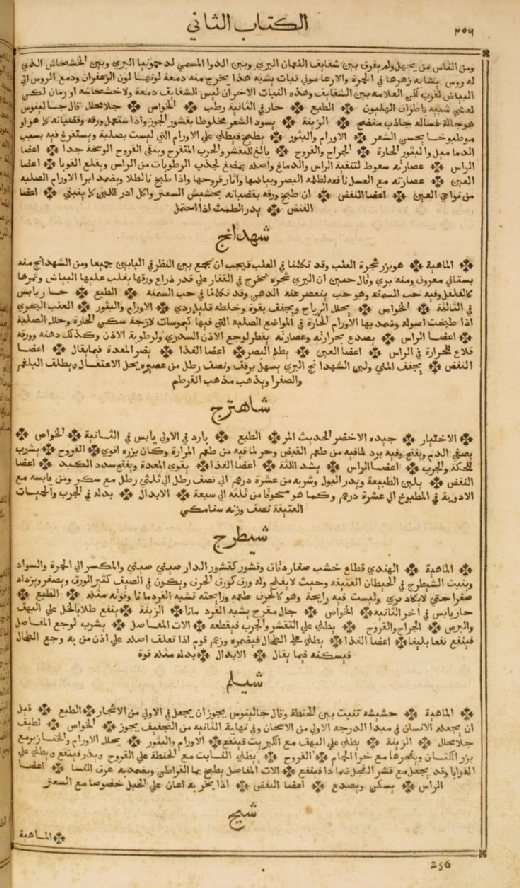 |
MOHAMMEDAN MEDICINE |
 |
|---|

The Prince of Physicians
Abu Ali Sina, (known as Avicenna in the West) wrote on numerous subjects, everything from philosophy to law, but his most famous book (easily) was, "Al-Qanun fi-l-tibb" (The Canon of Medicine)”. A work that once translated, would be used by Western Medical Universities until the 17th century. And while true, he was greatly influenced by Galen (and his theories of humours), making some of his work, out and out laughable by today’s standards, still for his day, he was light-years ahead of his time.
If one simply ignores those parts of the Canon dealing with humours etc., one quickly begins to see why he was called, “The Prince of Physicians”. He not only repeated what Galen, and Dioscorides had written before him, but also made extensive additions. Some obviously of his own creation, but he also seems to have extensively studied herbal medicine from other than western cultures such as Arabian, Chinese, Indian and Persian etc.
On the subject of Medical Cannabis, Avicenna devoted whole sections of his Canon on Medicine directly to Cannabis. According to the American University of Beirut’s website:
The Canon of Medicine - Book II
On specific Drugs set down alphabetically, (two Subsections Materia medica)
Chapter Nineteen Q (Qâf) -----
 Cannabis Sativa
Cannabis Sativa
Cannabis sativa --- Page 248 --- Talks about Kunnabis (hemp seeds) and ear infections, skin rashes, inflammation etc. In addition, it is suppose to warn about using too many leafs.
Chapter Twenty one - (Sheen) -----
 Cannabis Sativa, Hempseed, Common Hemp --- Page 256 --- Is suppose to almost be a repeat of page 248.
Cannabis Sativa, Hempseed, Common Hemp --- Page 256 --- Is suppose to almost be a repeat of page 248.
The Canon of Medicine - Book IV
Diseases involving more than one member. -- The cosmetic art Part 6, General discourse on poisons, 5 treatises
Chapter on Hyoscyamus niger or albus, or Datura fatuosa or Cannabis sativa -- Page 128 --- The subject actually starts on page 127, however due to the use of Old Arabic (modern day Arabic speakers have a hard time understanding it today), we don’t know exactly what it says.
And probably numerous other references (in compound drugs and/or uses), that we are not listed on their listed English Language Index. Unfortunately, (for whatever reason), we have not been able to find an English Language translation of the whole Canon (only part I), so we do not know the full extant of all mentions. Additionally, Avicenna wrote in “OLD” or classical Arabic which makes it hard to find anyone who can understand it fully today. But according to various sources, Avicenna wrote extensively on compound drugs and numerous clinical applications which makes it a certainty that numerous mentions of Medical Cannabis were made.

CANON OF MEDICINE - Book four Pg. 128

CANON OF MEDICINE - Book Two Pg. 248

CANON OF MEDICINE - Book Two Pg. 256
Our thanks to the “American University of Beirut” (Medical School) for their help. Their website is:
REFERENCES:
Avicenna: The Prince of Physicians and A Giant in Pharmacology The Journal Of Islamic Medical association Of North America" Volume 26, Pages 78-81, 1995.
WANT TO KNOW MORE:
=====================
Due to space / download time considerations, only selected materials are displayed. If you would like to obtain more information, feel free to contact the museum. All our material is available (at cost) on CD-Rom format.
CONTACT PAGE
Mohammedan Medicine Back to the Last Section |
 BACK TO MAIN SECTI0N |
Mohammedan Medicine On to the Next Section |